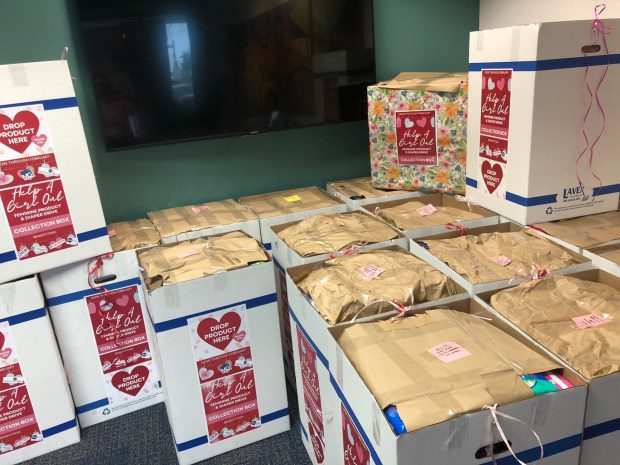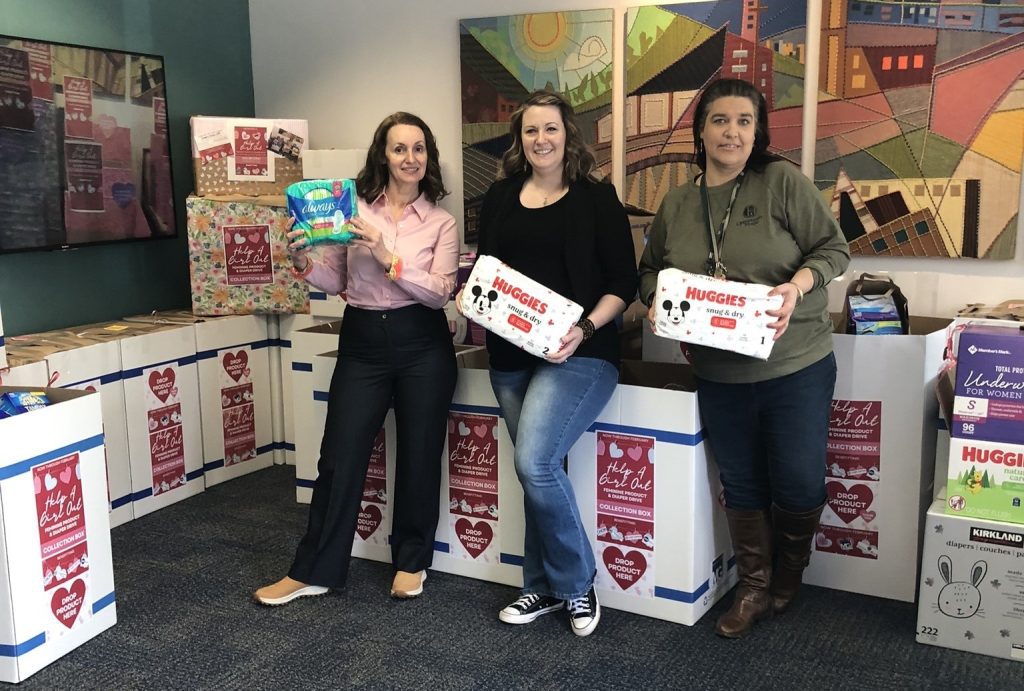In what has turned into a yearly effort to make a difference in the lives of women and girls in Berks County, this year’s grassroots Help a Girl Out feminine product and diaper drive saw a 137% increase in donations to help tackle period poverty.
Carried out in February, this year's Help a Girl Out drive gathered 47,134 units of products to be distributed to various nonprofit organizations in Berks County. In comparison, 19,928 units were collected in 2023.
This marked the third year of the Help a Girl Out initiative, which was launched in 2022 by Suzanne Cody, director of business development at Muhlenberg Greene Architects, Wyomissing. Cody shared that the grassroots initiative's annual drive began when she discovered that women and girls were facing difficulties due to a lack of access to feminine products, which deeply troubled her.
Cody expressed in a letter to the community at the end of this year’s initiative that the women and girls confronted challenges in attending school, earning wages, and preserving their dignity.
In an article on the Children’s Hospital of Philadelphia Policy Lab website, period poverty is described as the “insufficient access to menstrual hygiene tools and education, including but not limited to sanitary products, washing facilities, and waste management.”
Contributions made during the monthlong drive included pads, tampons, baby diapers, wipes, period underwear, menstrual cups, and adult diapers.
The items were allocated to Opportunity House, Children’s Home of Reading, Safe Berks, and the LGBT Center of Greater Reading.
Muhlenberg Greene and Be Mine Boutique in West Reading collaborated with Berks Women in Motion — a Berks-based networking group for professional women — for the 2024 drive. During a kickoff event on Feb. 1, participants were briefed about the nonprofits, gained insight into what period poverty entails, and how it impacts Berks, Cody stated in an emailed response to inquiries.
At that event, attendees signed up for a collection box and took materials to support their collection of items.

Cody credited the increased participation this year to “word of mouth, more dropoff locations, email blasts, and social media,” which aided in spreading awareness, along with numerous speaking engagements where Cody focused on menstrual equity.
“People genuinely care about this issue, and I have been fortunate to encounter other women who are community connectors that have assisted me in spreading the message, introduced me to other individuals and organizations, and provided me with opportunities to raise awareness about period poverty,” she remarked. She added that the American Businesswomen’s Association Berks Chapter, Berks Women in Motion, and the GRCA Women2Women group are “crucial partners for this progress.”
Cody mentioned that once all the donations were delivered to a central location in March, the items were tallied and distributed based on specific needs and populations.









